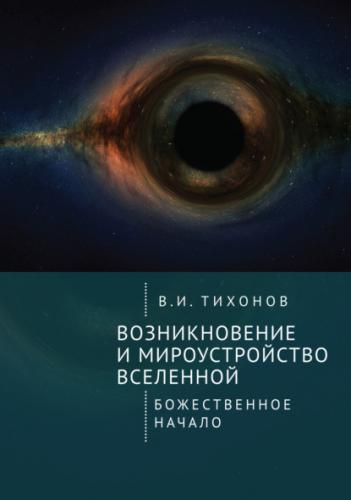1. Contemporary philosophical worldview of the fundamental principles of the existence of the Universe, the Triunity, and itscreation according to the Bible[1]
«I believe in one God, the Father Almightly, maker of heaven and earth, and of all things visible and invisible».
1. The latest scientific achievements provide for a more integral worldview and profound understanding and philosophical comprehension of the origin of our Universe. The long struggle of the two opposing worldviews about what is primary, the mind or the matter, continues. The philosophical notion about the origin and the existence of the Universe is split into two independent parts: the spiritual world is given to God and the material world, to science. Besides, the second part of the philosophical notion cannot plainly explain the origin and the existence of the material Universe.
The opposition exists even now. This opposition does not permit to come close to the truth. However, in Pagan Russia, the great Triglav (a three-headed deity) was worshiped and there existed three hypostases of the world view: the Rule, the Reality and the Novelty. This worldview provided an integral definition without separation into parts and was given as the Triunity of the World. The Triunity of the world around us makes it possible to give the precise description of the existence and the structure of the Universe.
In the 20th Century, the Russian scientist DI Mendeleyev came closer than anyone else to understanding of the integral worldview in his work Cherished Thoughts, published in 1905. While searching for the harmony of the order of the World, Mendeleyev arrived at the definition of the terms that permitted to distinguish the processes in the Universe.
In the beginning of his discourse on the complexity of the semantics in communicating a meaning, Mendeleyev writes: "In our ordinary conversation we are accustomed to distinguish only the idealism from the materialism, sometimes calling the latter realism. Of course, words always have their conditional meaning but, according to their origin itself, the three named words represent the complete divergence of their starting points – of the notion, and in this case the realism must be placed in the middle." In the end Mendeleyev gives the precise deninition of the Triad. In the chapter Worldview he writes: "I cannot, simply don't have enough courage, to complete the account of my Cherished Thoughts without having attemptedto convey my initial positions. In my understanding, the facet of the sciences hitherto barely achieved and, in all likelihood, still not that long obliging to serve as a facet of scientific knowledge, the facet after which already begins the non – scientific domain, always obliging to come into contact with the reality, to originate from it and to return to it, this facet comes down (I repeat again to avoid any misunderstandings – in my opinion) to the acceptance of the initial trinity of the distinct, corresponding one to another, eternal (to the extent that we can know it in reality) and all determining concepts: the substance (or matter), the force (or energy) and the spirit (or psyche)."
Mendeleyev came to the integral worldview of the basis of the Triunity. He proposed that the link of the matter and the Spirit proceeds with the aid of the energy (the information field). The material Universe is governed by God, the Supreme Mind. The unity and the integrity of the Triunity forms the basis of our Universe; its dev elopment in time occurs according to the laws set forth by God and no changes are possible without God.
Конец ознакомительного фрагмента.
Текст предоставлен ООО «ЛитРес».
Прочитайте эту книгу целиком, купив полную легальную версию на ЛитРес.
Безопасно оплатить книгу можно банковской картой Visa, MasterCard,
